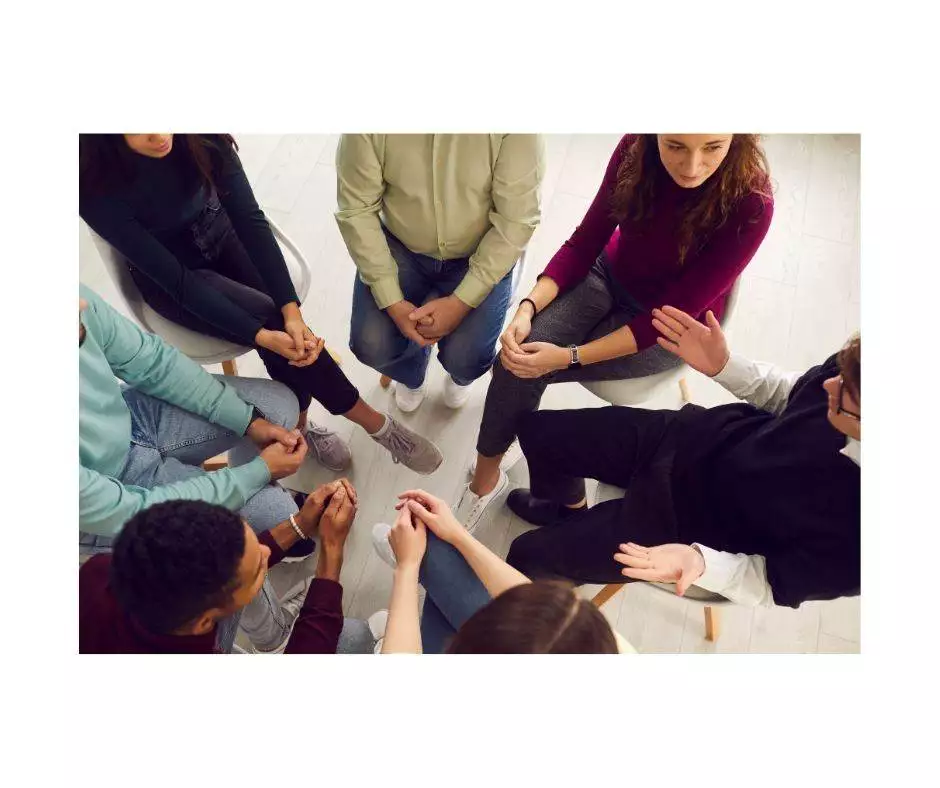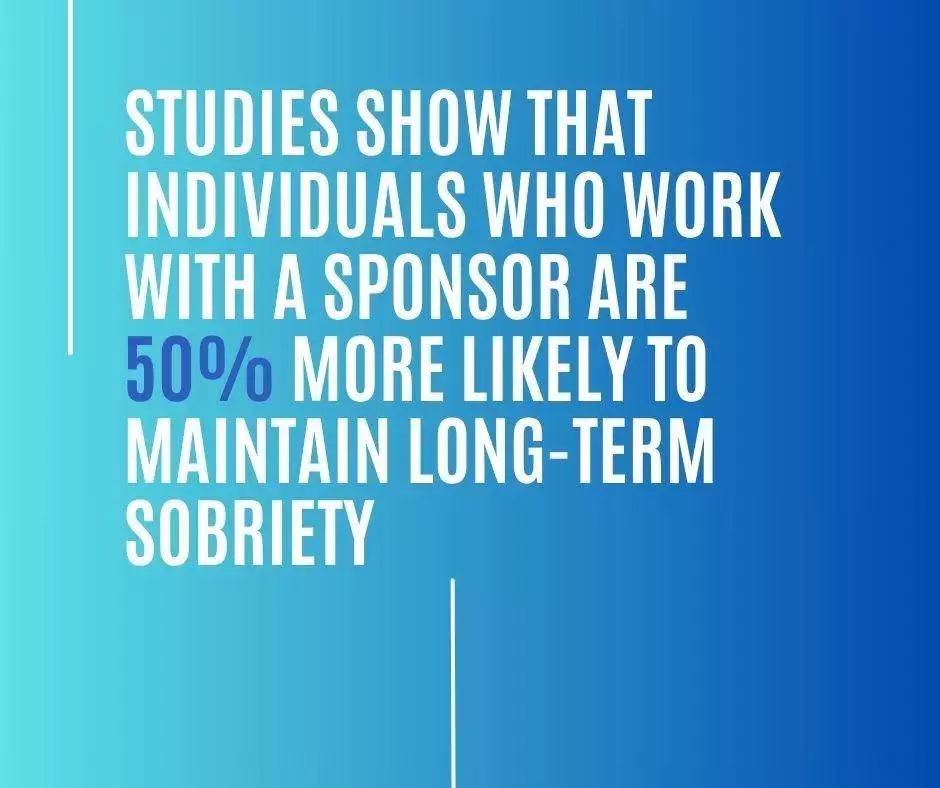As you embark on your journey to overcome addiction, you’ll encounter various support systems and treatment options. One crucial element in your recovery process is the role of a sponsor. At Bold Steps Behavioral Health in Harrisburg, PA, we understand the importance of comprehensive support for individuals battling common addictions such as alcohol, meth, heroin, and crack. Your sponsor will be an integral part of your recovery, working alongside our professional team to guide you through therapy, counseling, 12-step programs, and other treatment options like sober living, detox, PHP, IOP, and outpatient care. With 75% of individuals in recovery citing sponsor support as essential to their success, understanding this role is vital to your journey towards lasting sobriety and improved mental health. Take the first step toward recovery and contact us at (717) 882-5989 today.
What does it mean when someone is a sponsor?
Having a sponsor is a crucial part of the recovery process for those battling addiction. A sponsor is an experienced member of a support group, such as Alcoholics Anonymous (AA) or Narcotics Anonymous (NA), who acts as a mentor and guide.
A Trusted Confidant
A sponsor provides invaluable emotional support and accountability. They have walked the path of recovery from addiction themselves and understand the unique challenges you face. As a trusted confidant, your sponsor offers a non-judgmental ear to listen and sage advice drawn from personal experience.
An Ever-Present Resource
Sponsors make themselves available around the clock to offer guidance during moments of crisis or temptation. heThis constant access to someone who understands your struggles can make the difference between relapsing or staying strong on your recovery journey.
A Beacon of Hope
Perhaps most importantly, a sponsor represents living proof that long-term sobriety is achievable. Their very presence serves as a powerful motivator, instilling hope that you too can reclaim your life from the grips of addiction. With a sponsor by your side, the path to recovery feels far less daunting.
The purpose of a sponsor in addiction recovery
A sponsor plays a vital role in supporting long-term recovery. As a mentor with personal experience overcoming addiction, they guide individuals through the 12-step process. Their wisdom helps navigate challenges faced in early sobriety.
Accountability and encouragement
Sponsors provide accountability, ensuring commitments are upheld. They celebrate milestones and encourage perseverance through setbacks. This consistent support fosters lasting recovery from addiction and for one’s overall mental health.
Applying principles daily
Beyond meetings, sponsors help apply 12-step principles to daily life. Their advice on handling triggers or cravings is invaluable. As mentors sharing their journey, they inspire hope that recovery is possible.
Continued community
After treatment, sponsors connect individuals to local recovery groups. This community reinforces sobriety while transitioning to independent living. With 23.5 million Americans struggling with addiction, this support is crucial.
Types of sponsorships in addiction recovery
Mentorship Model
The most common sponsorship type follows a mentoring relationship where an experienced member guides a newcomer through the 12 Steps. The sponsor serves as an advisor, confidant and role model – sharing wisdom from their own recovery path. While not therapists, they provide support, accountability and an objective perspective during difficult times. They can even encourage you to seek therapy, whether group or individual.
Gender Considerations
Many organizations suggest having a sponsor of the same gender to avoid romantic distractions that could hinder recovery progress. However, some find value in a sponsor of a different background for gaining fresh insights into overcoming addiction’s challenges.
Compatibility and Boundaries
When choosing a sponsor, it’s crucial to find someone you feel comfortable opening up to. Their availability, length of sobriety (recommended 1+ years), and stable personal life are important factors. Clearly defined boundaries help maintain an objective relationship focused solely on your recovery needs.
Finding the right sponsor for your recovery
Qualities to Look For
When seeking a sponsor for addiction recovery, it’s crucial to find someone with long-term sobriety who has gone through a similar process. An effective sponsor should deeply understand addiction as a disease and approach recovery in a non-judgmental, empathetic manner. They should also be knowledgeable and can help you find the right detox programs, partial hospitalization, intensive outpatient care, and outpatient treatments. They must be willing to listen without criticism and keep conversations confidential.
Providing Guidance
A strong sponsor acts as a mentor, sharing their experiences to help guide you through challenges without turning to substances. Studies show that individuals who work with a sponsor are 50% more likely to maintain long-term sobriety. Regular contact, especially in early recovery, provides much-needed support and accountability. Look for someone willing to be available when you face cravings or difficult situations that could threaten your sobriety.
Navigating Treatment Options
The right sponsor should also help you navigate available treatment options like therapy, counseling, support groups, sober living arrangements, and more. Their insights on quality treatment facilities focused on client safety over profits can be invaluable.
Being a good sponsor: responsibilities and boundaries
Set Clear Expectations
As a sponsor, establishing clear expectations from the start is crucial. Communicate your availability preferences, such as preferred contact methods and hours. You should outline how you will guide your sponsee through each of the 12 steps to foster accountability.
Focus on Recovery
Your role is to support your sponsee’s sobriety journey within the AA fellowship. Respect their autonomy and avoid imposing personal beliefs or making decisions for them. AA recommends keeping the focus solely on AA, recovery, and sobriety, without altering their spiritual or political views.
Seek Professional Help When Needed
While sponsors play a vital role, they are not professional counselors. If your sponsee requires additional support beyond the scope of your expertise, refer them to appropriate professional resources. A sponsor could recommend a partial hospitalization program (PHP) or even different forms of therapy like cognitive behavioral therapy to address the root of one’s addiction.
FAQ: What is a sponsor?
In addiction recovery programs based on the 12 steps, such as Alcoholics Anonymous (AA) and Narcotics Anonymous (NA), a sponsor is a person in recovery who provides guidance and support to someone new to the program. They help “sponsees” work through the 12 steps and serve as a mentor and role model for living sober.
A guide through the steps
A sponsor’s primary role is to help the sponsee understand and apply the principles of the 12-step program. This often involves:
- Sharing their own experiences working the steps.
- Providing accountability and encouragement.
- Explaining concepts or offering different perspectives.
The sponsor essentially walks alongside the sponsee on their journey, providing wisdom from their own recovery.
A source of support
Beyond step work, sponsors offer vital support and encouragement. They may:
- Listen without judgment during struggles.
- Share strategies for overcoming cravings or handling triggers.
- Recommend meetings, literature, or other resources.
Having someone who understands the challenges of early recovery can make a significant difference. Sponsors exemplify that long-term sobriety is possible.
Conclusion
As you navigate the challenging path of addiction recovery, a sponsor can be an invaluable ally. Their guidance, support, and lived experience can significantly enhance your journey towards sobriety. At Bold Steps Behavioral Health in Harrisburg, PA, we recognize the crucial role sponsors play in conjunction with our comprehensive treatment options. From detox and therapy to 12-step programs and sober living arrangements, our multifaceted approach addresses both substance abuse and mental health disorders. Remember, with the right support system and professional care, recovery is achievable. Take the first step and contact us at (717) 882-5989 today and discover how a sponsor can bolster your recovery at Bold Steps.





